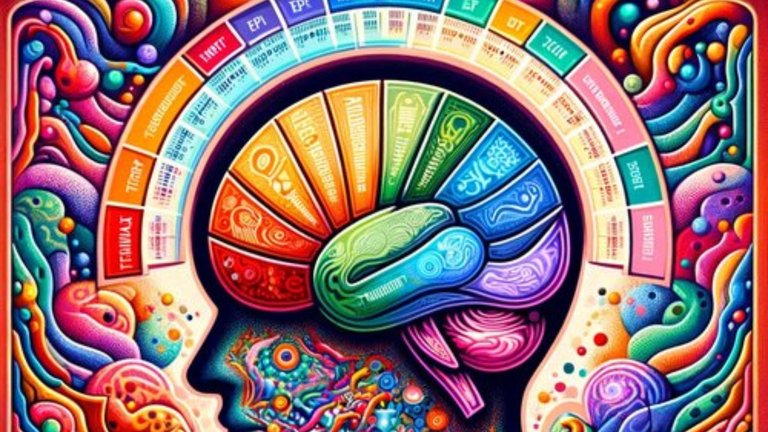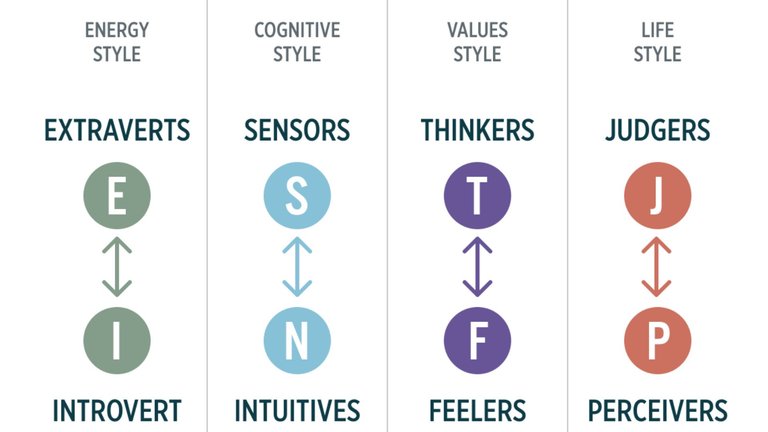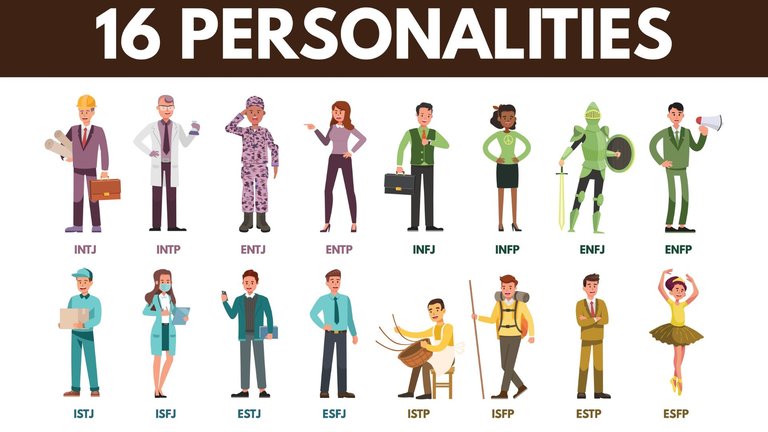One of the most popular tools in today’s world of self-assessment and self-evaluation is the Myers-Briggs Type Indicator (MBTI). Whether used as part of personal development or simply for fun, the MBTI has stirred debate over the accuracy and usefulness of its classification. The test itself is based on the work of Carl Jung and was made by Isabel Briggs Myers and her mother Katharine while she was cooking Briggs, in the mid-20th century.
The MBTI is based on four personality types, each representing two opposing viewpoints. Here are four pairs of preferences:
Extroversion: This pair associates with people who bring their energy. Extroverts gain energy from social interactions and outside activities, while introverts gain more energy from solitude and contemplation. While Perceivers tend to focus on facts and concepts, Intuitionists prefer patterns, possibilities, and abstract ideas. While Thinkers rely on intuition, insight, and consistency when making decisions, Feelers emphasize emotions, values, and the impact on others. How a person behaves in the outside world. Judgers need structure, a way of life, and like to plan; Perceivers are independent and flexible, and like to go with the flow. There is a type of behavior that is represented by four letters.
After taking the test, you will be given a four-letter character that describes your psychological preferences. These types are often associated with specific traits, strengths, and weaknesses. It can also be a tool for personal growth, professional development, and team building. For example, many workplaces use the MBTI to measure teamwork or improve communication skills.
Although the MBTI is widely used in many areas, from business to personal development, it is important to carefully evaluate its reliability and validity. The biggest criticism of the MBTI is its lack of scientific support. Many psychologists believe that the assessments are not accurate or precise enough to be used as a basis for important life decisions. Research has shown that the MBTI has low test-retest reliability, meaning that results can vary if the test is taken more than once, casting doubt on its consistency. Critics also say that the experiment is based on theories of psychology, particularly Carl Jung's, which have not stood up to the experimentation of modern science.

The MBTI simplifies the complexity of human behavior by classifying people into just 16 personality types. Many people see traits that don’t fit neatly into categories, such as extroversion or introversion, sensing or intuition. This means that the MBTI can be a useful tool for self-assessment, but it may not capture a person’s personality because personality is fluid and context-dependent.
Another reason for doubt about the MBTI is due to the Barnum effect, a psychological phenomenon in which people believe in their general statements about themselves, even though they apply to almost everyone just for experience. For example, the MBTI might tell someone whether they are creative or not and whether they enjoy connecting with others, which may be true for many people. These general statements can easily be accepted as true, even if the person has no specific understanding of their reality. On the other hand, MBTI can also provide value as a self-reflection tool. It encourages people to think about their interests, habits, and preferences. It can be a starting point for personal growth and can make people aware of areas where they may need improvement. For example, an INTP (introversion, intuition, thinking, perceiving) may recognize that their tendency to overanalyze can prevent them from making quick decisions, and they may work to take more pressure off decisions by giving them more opportunities to get to know others. Whether in a relationship or at work, understanding the personalities of others can improve communication, reduce conflict, and encourage better collaboration.
The Myers-Briggs test can provide some insight into our personality, but it should not be seen as an infallible measure of who we are. It is a tool for understanding emotions and preferences, but it is not a definitive classification. Human beings are hard to understand because they are multifaceted and no personality test can capture all of that complexity. It is not a definitive answer, but it can help guide our personal development, career choices, and relationships. Ultimately, the most important question is not whether we believe in the experiment, but whether the insights it provides are useful and helpful in our life. Finally, I would like to say, that everybody has a personal opinion about this test some can believe it while some cannot.

we can conclude that the Myers-Briggs Type Indicator provides an important foundation for understanding personality, but its validity and reliability are debatable. It can provide valuable self-awareness, but it should not be viewed as a psychological tool. As with all self-assessments, it is important to realize that human nature is too narrow to be confined to 16 categories. Use the MBTI as a starting point for understanding and growth, but do not let it define you or your abilities. After all, we are dynamic and constantly changing.
Thanks for reading
I hope you like it
do drop your comments and opinions below
Posted Using InLeo Alpha

😳
I didn't notice it properly sorry for that.
This is so detailed and it is my first time of hearing about this MBTI and all the other things you mentioned.
There are so many personalities but I believe that personality of a person is something that can be worked on and that might go against some of these philosophies and theories. But on a general scale, it is quite applicable.
Thank you for sharing this with us.
I am glad that you liked it